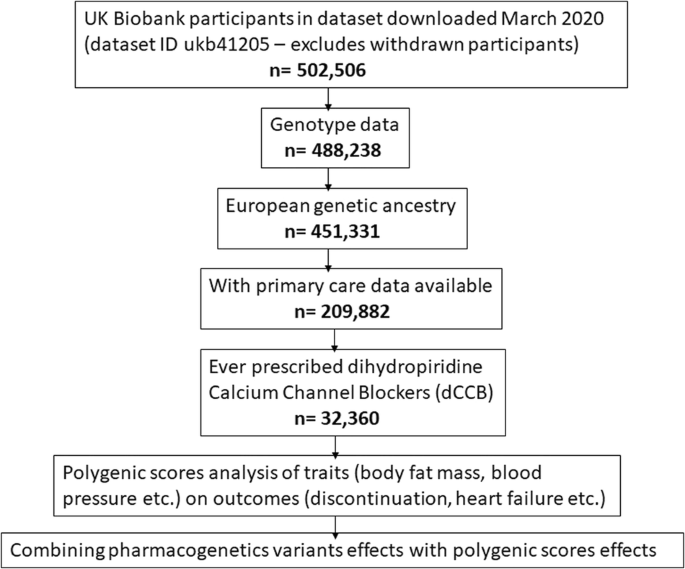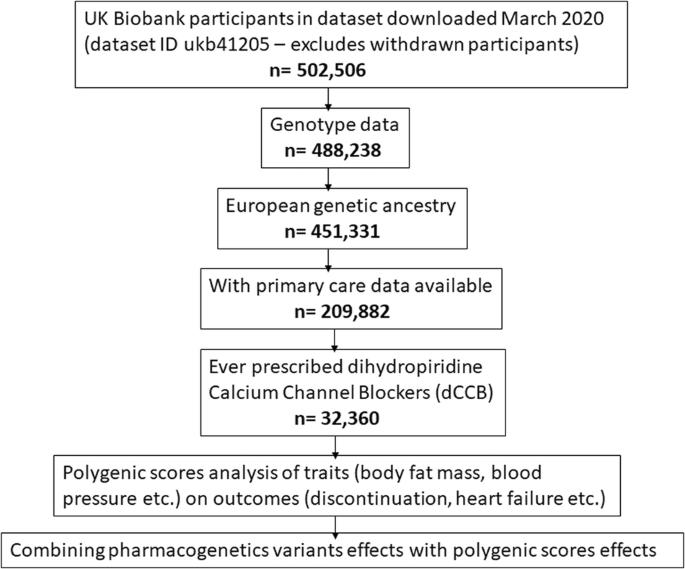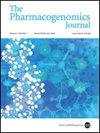Polygenic scores for cardiovascular risk factors improve estimation of clinical outcomes in CCB treatment compared to pharmacogenetic variants alone
IF 2.9
3区 医学
Q2 GENETICS & HEREDITY
引用次数: 0
Abstract
Pharmacogenetic variants are associated with clinical outcomes during Calcium Channel Blocker (CCB) treatment, yet whether the effects are modified by genetically predicted clinical risk factors is unknown. We analyzed 32,000 UK Biobank participants treated with dihydropiridine CCBs (mean 5.9 years), including 23 pharmacogenetic variants, and calculated polygenic scores for systolic and diastolic blood pressures, body fat mass, and other patient characteristics. Outcomes included treatment discontinuation and heart failure. Pharmacogenetic variant rs10898815-A (NUMA1) increased discontinuation rates, highest in those with high polygenic scores for fat mass. The RYR3 variant rs877087 T-allele alone modestly increased heart failure risks versus non-carriers (HR:1.13, p = 0.02); in patients with high polygenic scores for fat mass, lean mass, and lipoprotein A, risks were substantially elevated (HR:1.55, p = 4 × 10−5). Incorporating polygenic scores for adiposity and lipoprotein A may improve risk estimates of key clinical outcomes in CCB treatment such as treatment discontinuation and heart failure, compared to pharmacogenetic variants alone.


与单纯的药物基因变异相比,心血管风险因素的多基因评分可提高对 CCB 治疗临床结果的估测能力
药物基因变异与钙通道阻滞剂(CCB)治疗期间的临床结果有关,但这种影响是否会因基因预测的临床风险因素而改变尚不清楚。我们分析了 32,000 名接受二氢吡啶类钙通道阻滞剂治疗的英国生物库参与者(平均 5.9 年),其中包括 23 个药物基因变异体,并计算了收缩压和舒张压、体脂量和其他患者特征的多基因评分。结果包括治疗中断和心力衰竭。药物基因变异 rs10898815-A (NUMA1)增加了停药率,脂肪量多基因评分高的患者停药率最高。单独的 RYR3 变异 rs877087 T-等位基因会适度增加心力衰竭风险(HR:1.13,p = 0.02);在脂肪量、瘦肉量和脂蛋白 A 的多基因评分较高的患者中,风险大幅升高(HR:1.55,p = 4 × 10-5)。与单纯的药物基因变异相比,纳入脂肪量和脂蛋白A的多基因评分可能会提高对CCB治疗的主要临床结局(如治疗中断和心力衰竭)的风险估计。
本文章由计算机程序翻译,如有差异,请以英文原文为准。
求助全文
约1分钟内获得全文
求助全文
来源期刊

Pharmacogenomics Journal
医学-药学
CiteScore
7.20
自引率
0.00%
发文量
35
审稿时长
6-12 weeks
期刊介绍:
The Pharmacogenomics Journal is a print and electronic journal, which is dedicated to the rapid publication of original research on pharmacogenomics and its clinical applications.
Key areas of coverage include:
Personalized medicine
Effects of genetic variability on drug toxicity and efficacy
Identification and functional characterization of polymorphisms relevant to drug action
Pharmacodynamic and pharmacokinetic variations and drug efficacy
Integration of new developments in the genome project and proteomics into clinical medicine, pharmacology, and therapeutics
Clinical applications of genomic science
Identification of novel genomic targets for drug development
Potential benefits of pharmacogenomics.
 求助内容:
求助内容: 应助结果提醒方式:
应助结果提醒方式:


